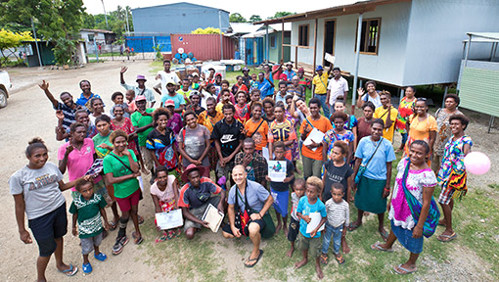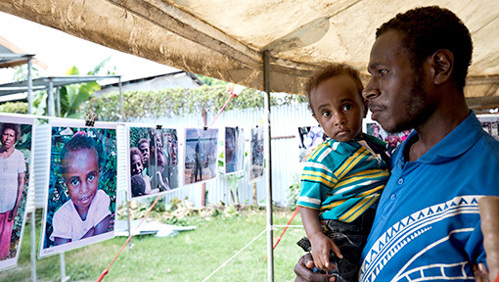
Armed with a basic digital camera and some photography skills training, a resilient group of young Papua New Guinean patients in Daru, Western Province, are finding a voice amidst the upheaval of a challenging treatment regimen for tuberculosis (TB) or drug-resistant TB (DR-TB).
Daru, the capital of PNG’s Western Province is dealing with a large-scale TB epidemic, and is known as a hotspot of intense transmission of DR-TB. Faced with up to 24 months of treatment using strong drugs with a high prevalence of serious side effects for DR-TB, many young patients struggle to finish the course.
Read some of their stories
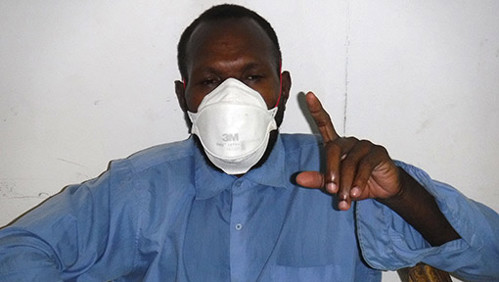
Augie Lala: My big brother is working inside the hospital. He is helping sick people in their beds with tubes and getting different medicine to cure them. He cleans their sores. Sometimes he helps me when I’m sick to drink some medicines.
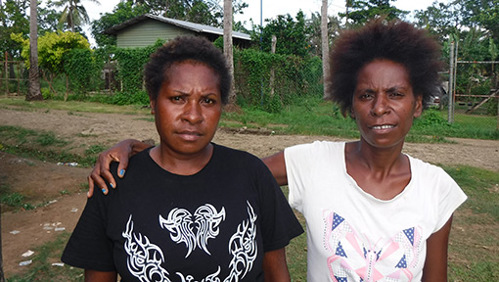
Anu Danu: When I started my treatment, I was a bit weak. Day two I felt better. I finished my three months and then continued another three months. I’m feeling happy. I took photos of the DART site house and my treatment supporters. (These) other patients recently started one week of treatment and asked me to take their photo.
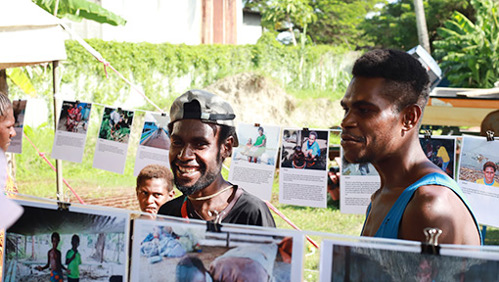
Bani Jugu: My mother is the one supporting me with my treatment. Like food, and whatever I need, she buys and brings to the house. When she harvests, she takes them (vegetables) to the market and gets money.
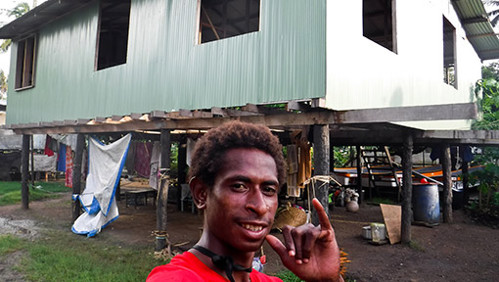
Timothy Moiba: My story is about a house, my auntie’s house… I’ve been staying there for three weeks. It’s important to me because the house is close to where I get my treatment. I’m excited to finish treatment and go back to my parents and continue my happy life with my parents.
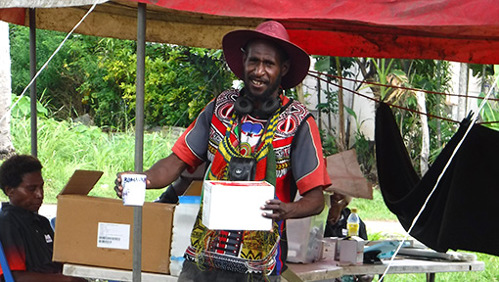
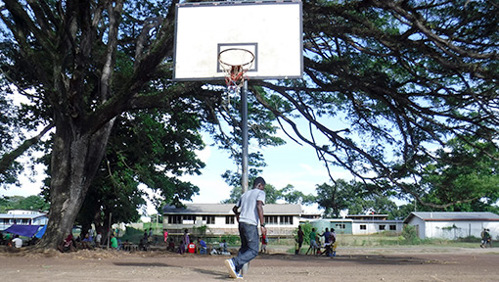
Nobby Nou Koiti: After I take my treatment I go down and sweat out at the basketball court. Every afternoon I go with other boys. We play four on four. At high school I wanted to captain a basketball team. (If) you’re a good player you are like a role model for other people.
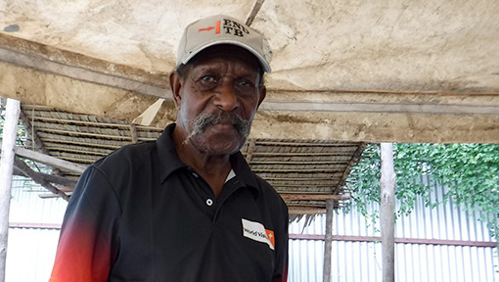
Eka Steven: My photos are about my family and another one of my treatment supporter. He helps me get better so I can finish my medicines. He is like a father or mother to us.
A voice for young at-risk tuberculosis patients
Two groups of TB patients, aged 18-28 years, who were considered possibly at-risk of stopping treatment, were encouraged through the PHOTOVOICE program to visually document their lived experience, and share insights into what is important to them. PHOTOVOICE empowered the young people to use visual expression to tell their story.
It also aimed to increase self-esteem and a sense of pride, community awareness about the many challenges these young people face in dealing with strong stigma and discrimination, and the effects of poverty, relocation to Daru to access treatment and disruption of education.
Thanks to a generous anonymous donor, support of The South Fly District TB counselling team through the Australian NGO Cooperation Program (ANCP) RID-TB Education and Counselling (PEC) project, PHOTOVOICE has had a remarkable impact on the Daru community.
A special PHOTOVOICE exhibition held earlier this year in a compound in Daru where one of the TB clinics is based attracted more than 80 visitors, and enabled the participants to proudly share their photos with family, friends and the community. Burnet Social Worker, Ms Tess Keam and a photography facilitator, Ricardo Piscioneri, helped coordinate the project.
“Adherence to treatment tends to be harder for this group (18-25-year-olds) as they are affected by disruption to education and peer pressure,” Ms Keam said.
“The difficult treatment regimen, existence of strong stigma and discrimination in the community, and pre-existing factors of poverty make daily life extremely difficult for people living with TB in Daru.
“It was also important that PHOTOVOICE trained and involved local Peer Counsellors who encouraged the patients to talk about their photos and will be able to lead this project in another area of the province in the future.”
